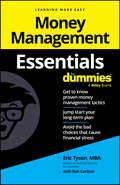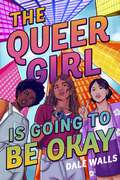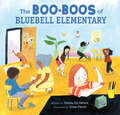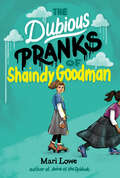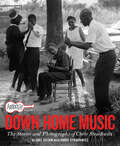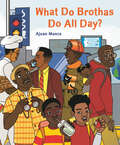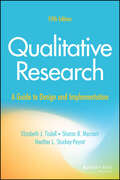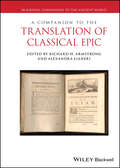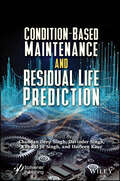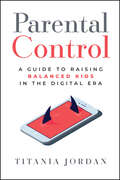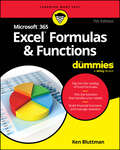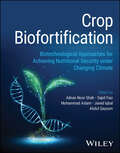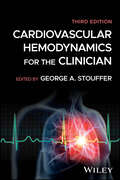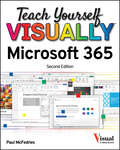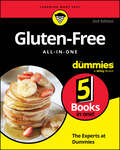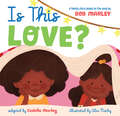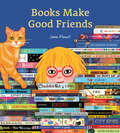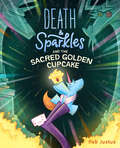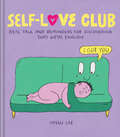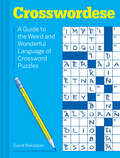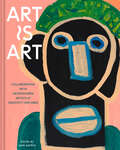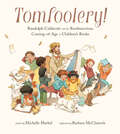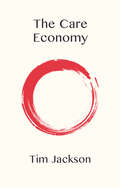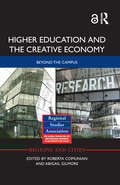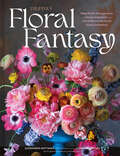- Table View
- List View
Money Management Essentials For Dummies
by Eric TysonJust the essentials you need to know to better manage your money Money Management Essentials For Dummies is your cheat sheet on becoming financially secure, now and into the future. Small and value-priced for the budget conscious, this book offers strategies for anyone to say goodbye to excess debt and prepare to achieve their goals. You'll discover the easy steps you can start taking today to get to a place of stability with your money. Create an emergency fund, manage outstanding debt, get good insurance, invest your money, and set financial goals—with this easy-to-follow guidance. This Essentials For Dummies guide will help you set yourself up for financial success. Understand how effective money management leads to financial security Build up enough savings that you can survive life's curveballs Make an achievable plan for managing debt Start investing your money and planning your estate Need easy-to-understand information to help get on track financially? Money Management Essentials For Dummies is the guide for you.
The Queer Girl is Going to Be Okay
by Dale WallsPublishers Weekly Best of the Year Queer Love. Something Dawn wants, desperately, but does not have. But maybe, if she can capture it, film it, interview the people who have it, queer love will be hers someday. Or, at least, she'll have made a documentary about it. A documentary that, hopefully, will win Dawn a scholarship to film school. Many obstacles stand in the way of completing her film, but her best friends Edie and Georgia are there to help her reach her goal, no matter what it takes. A touching and joyous story of queer friendship and girlhood set in the vibrant city of Houston, THE QUEER GIRL IS GOING TO BE OKAY will make you laugh, make you cry, and make you believe that eventually, everything will be okay.
The Boo-Boos of Bluebell Elementary
by Chelsea Lin WallaceA rollicking read-aloud featuring a wide cast of characters coming to the school nurse for help with their hilariously dramatic bumps, runny noses, and many other colorful complaints!Kids at Bluebell don't feel well—Gus is sad, and Benny fell. Splinters, lice, a paper cut, throw-up, bumps, a hungry gut. Charlee's tooth won't wiggle free!But there's someone to go to—Miss Peatree!The big feelings and minor dilemmas of elementary school are no match for this hilarious, delightful cast of characters and the untiring compassion of Miss Peatree. One after another, students pile into her office to get fixed up—whether they need a Band-Aid for a bumped knee or a solution for a touch of homesickness. Even the principal visits with an urgent paper cut!With irresistible, hilarious rhyme and endlessly lively art, Chelsea Lin Wallace and Alison Farrell showcase the humor of elementary school's many little problems and the gentle good sense that puts everything right.HILARIOUS HUMOR FOR ALL AGES: This genuinely funny picture book for kids will tickle adults, too. It's tongue-in-cheek but genuine, dramatic but keenly felt. Riddled with rhyme and chock-full of humor in every stanza, it's a perfect read-aloud at school, at bedtime, or whenever kids need cheering up on terrible, horrible, no good, very bad days.TIMELESS TOPIC: Classic in sensibility but with fresh, sharp wit, this book touches on a truly universal topic with an authentic voice young readers will recognize and identify with. The children's struggles immediately capture the drama of feeling sick without being scary. CELEBRATING SELF-CARE: In celebrating the ups and downs of potentially scary situations—feeling sick or getting injured—this book emphasizes the value of sharing emotions and seeing oneself through life's various difficulties. GREAT BOOK FOR CLASSROOM LIBRARY: The accessible, easy-to-read, funny text does an excellent job of getting kids to read and enjoy poetry without even noticing it. In addition to sharing this book for its fun school setting, elementary school teachers and librarians can easily use it in connection with poetry units.Perfect for:Read-aloud option for parents, teachers, and librarians looking for funny books for kidsStarting-school or back-to-school book for young readersReassuring book for kids who experience sickness or struggle to get through bad daysFans of humor, children's poetry, and books that celebrate big feelings
The Dubious Pranks of Shaindy Goodman
by Mari LoweSYDNEY TAYLOR BOOK AWARD WINNER NATIONAL JEWISH BOOK AWARD WINNER Kirkus Top 10 Middle Grade for Fall ‘23 SHAINDY is a twelve-year-old Orthodox Jewish girl who struggles in school and has no good friends. She watches with envy as her next-door neighbor, GAYIL, excels socially and academically. They have little to do with each other, and it comes as a surprise when Shaindy looks out her window one September evening and sees Gayil staring out at her from her own window with a sign reading want to know a secret? The secret (at first) is that Gayil has a key fob that will allow them to break into their school after hours. Together, they set up a harmless prank in their classroom. But under Gayil’s instigation the mischief becomes malice, and Shaindy sees that the pranks and humiliations are targeted only at certain girls. But what could they have in common? With the fear of Gayil’s fury and her own reluctance growing, Shaindy comes to the terrifying conclusion that if she can’t figure out how to stop it, the next target could be her. P R A I S E ★ "Absorbing and principled… Lowe wastes not a word in crafting this taut and emotionally roiled exploration of culpability and forgiveness. Gayil is right–‘sixth grade is hard’–and Shaindy's vulnerability will likely resonate deeply with readers who share Shaindy's longing for acceptance." —Shelf-Awareness (starred) ★ "[An] introspective novel full of perceptive emotional observations." —Horn Book (starred) "Pitch-perfect… The struggle between trying to fit in and keeping true to yourself will resonate with all tweens." —School Library Journal "This thoughtful middle grade novel explores the complexity of middle school friendships, bullying, and what it means to make amends and have a fresh start." —Bulletin of the Center for Children’s Books "An enormously rewarding meditation on friendship, fairness, and forgiveness." —Booklist "A nuanced exploration of the intricacies of friendship… Engrossing and deeply relatable." —Kirkus
Arhoolie Records Down Home Music: The Stories and Photographs of Chris Strachwitz
by Joel SelvinA visual storytelling celebration of American roots music in its rich variety through unseen and newly scanned photographs by the founder of the legendary Arhoolie Records.Founded in 1960 by Chris Strachwitz, the one-man operation Arhoolie Records eventually produced more than four hundred albums during more than forty years in operation, exploring the far corners of American vernacular music—blues, gospel, Cajun, zydeco, hillbilly, Texas-Mexican norteño music, and more.From the very beginning, Strachwitz brought his camera along with recording equipment as he met and recorded now-legendary artists such as Lightnin’ Hopkins, Mississippi Fred McDowell, Clifton Chenier, and Big Joe Williams. This book collects more than 150 of his best, most intimate, and exciting images—many never-before-seen—each with rich captions by Strachwitz and award-winning music journalist Joel Selvin, along with a substantial 20,000-word essay by Selvin about Arhoolie, Strachwitz, and the music.INTIMATE AND AMAZING PHOTOGRAPHS: Although Strachwitz would always self-deprecatingly claim that the photographs he took while meeting and recording musicians were strictly documentary, and *maybe* of some use for a record sleeve later, they are much more than that. Lyrical, candid, real: His rapport with the musicians and their families is glowing and evident in these photographs.RIVETING MUSIC HISTORY PHOTO BOOK: These are never-before-seen photos, and photos like you’ve never seen before. Every image is from freshly remastered scans, and the authors dove deep into the Arhoolie archives to uncover images almost no one has had the chance to see. CRUCIAL AMERICAN MUSIC AND CULTURAL HISTORY: Strachwitz’s wide-ranging interest and unbridled enthusiasm for all sorts of roots music led to his crisscrossing the country from artist to artist based on recommendations, rumor, tips, radio broadcasts—the result being a portrait (in sound for the label, and image in this book) of vital American music in a wide range of genres. He has rich stories for each photograph and artist. AN INVALUABLE DOCUMENT: Arhoolie fundamentally shaped our understanding of American music. Renowned music writer Joel Selvin has not only worked with Strachwitz to draw out the stories behind the photographs, but he has contributed an invaluable long-form essay about Arhoolie, Strachwitz, and the label's cultural legacy to anchor this incredible book.Perfect for:Fans of American roots music, including the blues, folk, Cajun, Creole, zydeco, Mexican American border music, and moreFans of Lightnin' Hopkins, Mississippi Fred McDowell, Big Mama Thornton, Lydia Mendoza, Clifton Chenier, Flaco Jiménez, Mance Lipscomb, Narciso Martínez, Big Joe Williams, and the other fantastic artists whose records Arhoolie released over the yearsBirthday, holiday, graduation, or anytime gift for musicians and music loversCollectors of music history, American cultural history, Black history, and music photography books
What Do Brothas Do All Day?
by Ajuan ManceInspired by Richard Scarry’s What Do People Do All Day?, these joyous portraits of Black men engaged in everyday life celebrate the deep roots and rich cultures of African American communities.Have you ever wondered . . . What do brothas do all day?Brothas drive. Brothas dance. Brothas work. Brothas listen. And brothas love.Scarry's now-classic book, first published in 1968, is a richly illustrated guide to the places, jobs, and activities that defined the daily lives of grown-ups. Author-illustrator Ajuan Mance created What Do Brothas Do All Day?, like Scarry, in response to children's innate curiosity about the activities and experiences of others, but also to meet the longing many kids have for characters and communities that look and feel like the people and places they know.This joyous reflection of real Black men and boys engaged in everyday life is a gift for Black kids who rarely see themselves reflected in the pages of a book and an affirmation of their world and the people who populate it. From grocery shopping and waiting for a trim at the barbershop to singing, dancing, and laughing with friends, Mance captures the beauty in the ordinary, affirming the enduring strength of the Black community.DIVERSE BOOKS FOR KIDS: This picture book features real Black men the author has observed in the world—everyday people, not models or stereotypes. One fan describes it as "just a rainbow of Black men, a beautiful rainbow of Black men."LIBRARIAN LOVE: What Do Brothas Do All Day? began as an all-ages zine, but the author began to conceive of it as a children's book after being approached by two children's librarians.INSPIRED BY A CLASSIC: As the author notes in the book, "I first encountered Richard Scarry's work in the early 1970s when I was about six years old. The world of adults, with its grocery lists, PTA meetings, shopping trips, and dinner parties, seemed both tantalizingly exotic and impossibly complex. Today, those same descriptors can be applied to the ways that many people of all ages perceive Black men."AN INVITATION: The book ends with an invitation, perhaps even a call to action: What will you do today?Perfect for:Parents and grandparents seeking engaging read-aloud and read-along picture booksTeachers and librarians looking for books featuring Black communitiesGift for readers of Jacqueline Woodson, Kwame Alexander, Cedella Marley, and Derrick Barnes booksFans of Richard Scarry's What Do People Do All Day?
Qualitative Research: A Guide to Design and Implementation
by Sharan B. Merriam Elizabeth J. Tisdell Heather L. Stuckey-PeyrotThe essential guide to understanding, designing, conducting, and presenting a qualitative research study Qualitative Research: A Guide to Design and Implementation, 5th Edition is filled with practical advice and proven guidance for designing and implementing qualitative research studies, and for communicating findings clearly and effectively. Readers will develop a strong foundation in qualitative research theory and application, including an understanding of data sources, data analysis tools, and the types of qualitative research. This revised Fifth Edition offers an expanded interdisciplinary focus, covering qualitative research in the medical and health professions, the social sciences, education, and the humanities. It also covers new tools and technologies—including discussion of AI in qualitative research—that facilitate the process of conducting, analyzing, and presenting research. Written in reader-friendly terms, Qualitative Research is accessible to both novice and experienced researchers. Discover the theories, techniques, and analysis methods that make for rigorous qualitative studies Consider issues related to online data collection, interpretation of results, and qualitative research ethics Learn to develop a strong theoretical framework to guide qualitative studies Discover how qualitative research is used in many fields, including healthcare Qualitative Research: A Guide to Design and Implementation is an indispensable reference for students and researchers looking to grow their knowledge of qualitative research methodologies across disciplines.
A Companion to the Translation of Classical Epic (Blackwell Companions to the Ancient World)
by Alexandra Lianeri Richard H. ArmstrongThe first volume of its kind to integrate trends in Translation Studies with Classical Reception Studies A Companion to the Translation of Classical Epic provides a comprehensive and wide-ranging account of key debates and case studies centered the translation of Greek and Latin epics. Rather than situating translation studies as a complementary field or an aspect of classical reception, the Companion offers a systematic framework for adapting and incorporating translation studies fully into classical studies. Its many chapters elaborate how translation is a central element in the epic's reception trajectories across the globe and addresses theoretical and methodological concerns arising from this conjunction. The Companion does not just provide a comprehensive overview of the translation theories it covers, but also offers fresh insights into theoretical and methodological issues currently at the top of the interdisciplinary agenda of scholars studying the global routes of ancient epic. In its sections, leading classicists, translation theorists, classical reception scholars, and cultural historians from Europe and North and South America reconfigure questions this research faces today, highlighting methods for an integrated approach. It explores how this integrated perspective responds to key challenges in the study of the epic's reception, emphasizing topics of temporality, gender, agency, community, target-language politics, and material production. A special section also features detailed dialogues with active translators such as Emily Wilson, Stanley Lombardo, and Susanna Braund, who speak extensively and frankly about their work. This is a key volume for all students and scholars who want to engage with research reflecting the contemporary agenda in classical reception, translation studies, and the study of epic in its global literary and cultural routes.
Condition-Based Maintenance and Residual Life Prediction
by Harleen Kaur Chandan Deep Singh Davinder Singh Kanwal Jit SinghCondition-Based Maintenance and Residual Life Prediction is essential for those looking to effectively implement condition-based maintenance strategies and enhance fault detection through a comprehensive understanding of vibration data analysis and residual life prediction, addressing key challenges in the field. Issues related to condition-based maintenance include its high initial cost, new techniques that can be difficult to implement due to resistance, older equipment that can be difficult to retrofit with sensors and monitoring equipment, and difficult-to-access equipment during production that is difficult to spot-measure. Keeping the above issues in mind, a general handbook for condition-based maintenance and residual life prediction is required to carry out in fault detection. Condition-Based Maintenance and Residual Life Prediction aims to develop, analyze, and model condition-based maintenance and residual life prediction through vibration data. The analysis of vibration responses will aid in developing a fault detection system. The sources of vibration may be due to the presence of different types of defects, such as cracks in the shaft, a bent shaft, or misalignment of shafts. This will give designers a diagnostic tool for predicting the trends of vibration conditions, leading to early fault detection. The devised tool will be capable of quantifying the amplitude of vibration based on the severity of defects. With the features available in the devised diagnostic tool, the proposed model can be used for design, predictive maintenance, and condition-based maintenance.
Parental Control: A Guide to Raising Balanced Kids in the Digital Era
by Titania JordanPractical strategies and tips to help raise and teach children in a digital-first world In Parental Control: A Guide to Raising Balanced Kids in the Digital Era, Titania Jordan, a renowned internet and social media safety specialist, tackles the urgent dilemmas of modern parenting head-on. As technology increasingly engulfs the lives of our children, this book emerges as a beacon for those looking to guide, protect, and connect with them in meaningful ways. Navigating the complex digital landscape, Jordan delves into the effects of social media and the internet on our kids. She uncovers the challenges of balancing screen time with real-life interactions and the erosion of offline social skills due to digital immersion. Yet, it's not all dire—Jordan's expert insights offer a pathway to turning potential digital pitfalls into educational opportunities. The book will help you: Learn how to educate and empower the next generation to navigate the internet safely and responsibly Discover actionable advice on setting boundaries, fostering offline interactions, and promoting healthy digital habits. Benefit from the latest internet safety data, trends, and tips to keep your children protected in the digital age Perfect for parents, educators, and caregivers, Parental Control is more than just a book. It's a roadmap to raising well-adjusted children in a technology-driven world. This guide provides the tools you need to ensure technology complements the lives of those you care about, rather than consuming them. If you're looking to navigate the challenges of modern-day parenting with confidence and create a safe, balanced digital environment for your children, then this book is for you.
Microsoft 365 Excel Formulas & Functions For Dummies
by Ken BluttmanTurn Excel into an unstoppable data-and number-crunching machine Microsoft Excel is the Swiss Army knife of apps. With over 470 built-in functions and countless custom formulas, the program can help make you the smartest guy or gal in any room. And now that it's been supercharged with Copilot—Microsoft's AI-powered helper—it's even easier to produce accurate and useful results anywhere, anytime. Best of all, it doesn't take an advanced degree in mathematics or data science to take full advantage of Excel's functionality. Just grab a copy of this latest edition of Excel Formulas & Functions For Dummies and get a flying start on the Excel functions and formulas that power up your data superpowers. With this book, you'll: Learn to create and use hundreds of formulas and functions, correct common mistakes, and make calculations Discover how to analyze data and calculate statistics, and even work with dates and times Use the ever-evolving, AI-powered Copilot to expand Excel's functionality and make it easier to use Get ready to transform your copy of Excel at home or at work into an unstoppable toolkit equipped for almost any occasion. Grab a copy of Excel Formulas & Functions For Dummies today!
Crop Biofortification: Biotechnological Approaches for Achieving Nutritional Security under Changing Climate
by Muhammad Aslam Abdul Qayyum Sajid Fiaz Adnan Noor Shah Javed IqbalDevelop more nutritious crops to aid in the fight against world hunger with this timely volume One in nine people worldwide suffer from hunger or food scarcity. Massively increasing food production is one of the most urgent scientific projects in the modern world, particularly as a changing climate places increasing pressure on the global food supply and on sustainable food production processes. Biofortification is a process in which plant breeding, improved agronomic practices, and/or modern biotechnology are employed to increase nutrient density of crops without sacrificing any of their desirable characteristics. It’s an essential tool in the global fight against hunger. Crop Biofortification offers an up-to-the-minute overview of this essential subject and its recent advances. It covers all the latest methodologies and techniques deployed in biofortification, as well as surveying plant responses to genetically induced biofortification and the effect of climate change on biofortified crops. Designed to allow for the application of these techniques at the field level, it’s a significant contribution towards the search for a sustainable global food supply. Crop Biofortification readers will also find: Presentation of recent advances in omics, particularly metabolomics, which can decipher potential changes in plants caused by biofortificationDetailed discussion of methods for increasing the nutritional content of edible plants to address specific nutritional deficienciesContributions towards a road map for increasing global food production by 70% before the year 2050 Crop Biofortification is ideal for researchers, policymakers, and professionals interested in the potential biofortification of crop plants, as well as graduate and advanced undergraduate students in agronomy, plant physiology, plant breeding and genetics, agricultural biotechnology, and related fields.
Cardiovascular Hemodynamics for the Clinician
by George A. Stouffer J. Larry KleinConcise, reliable, and useful handbook for understanding the practical application of hemodynamics in clinical medicine Cardiovascular Hemodynamics for the Clinician, Third Edition is a concise, straightforward handbook to help practicing clinicians and physicians in training better understand and interpret hemodynamic data. This book contains useful and practical information that will be helpful in making specific diagnoses, determining prognosis, and guiding therapy. The text provides a basic overview of cardiac and circulatory physiology followed by detailed discussion of pathophysiological changes in various disease states. Topics covered include the basics of hemodynamics, nuts and bolts of right heart catheterization, coronary artery disease, cardiomyopathies, cardiogenic shock, valvular heart disease, arrhythmias, mechanical circulatory support devices, and pericardial disease. Numerous pressure tracings and comprehensive information on other hemodynamic data including cardiac output, intracardiac shunts, and coronary hemodynamics are included throughout the book. The book has a large number of case examples which reinforce the text by demonstrating what is seen in daily practice. New content for the third edition includes expanded discussion of transcatheter valves, ventricular assist devices, ECMO, assessment of coronary microvasculature, use of resting coronary indices to determine hemodynamic significance of atherosclerotic coronary artery disease, acute right heart strain in pulmonary embolus, and interventions for tricuspid and mitral valve disease. Written by a group of highly qualified authors with significant academic and practitioner experience, Cardiovascular Hemodynamics for the Clinician, Third Edition includes information on specific sample topics including: Basics of hemodynamicsNuts and bolts of right heart catheterization and PA catheter placement, the atrial waveform, cardiac output, and detection, localization, and quantification of intracardiac shuntsHemodynamics of valvular disease including aortic and mitral stenosis and regurgitation, pulmonary valve disease, and tricuspid valve diseaseHypertrophic and restrictive cardiomyopathyAcute and chronic heart failure Pericardial disease including constrictive pericarditis, effusive-constrictive pericarditis, and cardiac tamponadeCardiogenic shockHemodynamics of mechanical circulatory support devices including ECHO, Impella, Tandem Heart, and intra-aortic balloon counterpulsationCoronary hemodynamics, fractional flow reserve, and coronary microvascular dysfunctionHemodynamics of right ventricular myocardial infarctionPulmonary hypertensionHemodynamics of arrhythmias and pacemakers Cardiovascular Hemodynamics for the Clinician, Third Edition is an essential reference for cardiologists, intensivists, anesthesiologists, cardiovascular surgeons, advanced practice providers working in the ICU, Cath Lab or CV surgery service, medical and surgical residents, cardiology fellows, intensive care unit nurses, and cath lab nurses and techs.
Teach Yourself VISUALLY Microsoft 365
by Paul McFedriesAn illustrated, A-to-Z, and newly updated guide to mastering Microsoft Office 365 Teach Yourself VISUALLY Microsoft 365, 2nd Edition is a newly revised edition of the easy-to-use and up-to-date visual walkthrough of Microsoft's ubiquitous office products. It#s the fastest and most efficient way to get up to speed on world-famous apps like Word, Excel, and PowerPoint, offering crystal-clear, high-resolution screenshots that show you exactly how to get things done. Tired of confusing, text-based “instructions” that leave you scratching your head and wondering, “Why didn't that work?” Then grab a copy of TYV Microsoft 365, 2nd Edition for a complete, A-to-Z tour of Microsoft 365 that takes you through how to generate sophisticated documents in Word, crunch numbers in Excel, keep your life organized in Outlook, and build attractive and persuasive presentations in PowerPoint. This book shows you how to master basic, foundational features that have been around for years, as well as cutting-edge new additions to the software—like Microsoft's Copilot AI—that make your job easier and make you more productive. From working with files in the cloud to setting up your own local databases in Access, TYV Microsoft 365, 2nd Edition puts the info, screenshots, and instructions you need at your fingertips. Readers will find: Hundreds of hi-res, full-page screenshots that demonstrate Microsoft 365's most useful features Specific instructions on how to get more from your favorite Office 365 apps, like how to add attachments to your Outlook emails or include narration in a PowerPoint presentation Techniques to incorporate artificial intelligence in your everyday work to supercharge your productivity by summarizing Word documents or automatically generating Excel formulas Perfect for anyone looking for an intuitive and visual guide to Microsoft 365 that comes with full-screen images that show you exactly what to do and where to click, Teach Yourself VISUALLY Microsoft 365, 2nd Edition is the simplest and most effective resource for mastering the world's most popular suite of office apps.
Gluten-Free All-in-One For Dummies
by The Experts at DummiesSimple advice on avoiding gluten, balancing your diet, and keeping your gut healthy Whether you're choosing to cut out gluten due to medical necessity or by choice, Gluten-Free All-In-One For Dummies helps you adapt to a gluten-free lifestyle and shows you how to steer clear of gluten, inside and outside the home. Newcomers to the gluten-free diet (and those who have been gluten-free for a while) will love this comprehensive guide packed with tips on which ingredients to swap out, how to cook without gluten, and what to watch out for in restaurants. Plus, enjoy more than two hundred tasty (and nutritious!) gluten-free recipes that will help keep your gut healthy. Learn about the benefits of a gluten-free diet Get recipes for gluten-free cooking and baking Go gluten-free on a budget with affordable ingredients Maintain your gut health with nutritional tips from the experts With content pulled from several popular For Dummies books, this comprehensive resource is full of reliable information for anyone who wants or needs to cut out gluten.
Is This Love (Marley)
by Bob Marley Cedella MarleyRelive the magic of Bob Marley's most beloved songs in this newest picture book adaptation!Is this love?Is this love that I'm feeling?Bob Marley's music has captured the hearts and souls of families around the world. This sweet adaptation of one of his best loved songs is a heartwarming tale of an older child's love for a younger sibling.From the moment she sees her baby sister, big sister knows just what she's going to do: love her and treat her right, every day and every night. Playing together, watching over her, standing by her through thick and thin . . . big sister does it all, because yes, this is love that she's feeling.Adapted by Cedella Marley, Bob Marley's eldest child, and exuberantly illustrated by Alea Marley, Is This Love is a joyful ode to the unshakeable love shared by all those who call one another family.BOB MARLEY FANS: This new addition to the series based on the lyrics of famed reggae musician Bob Marley introduces his music and ideals to the youngest of readers, while inspiring nostalgia in older ones.GREAT READ ALOUD: The musical refrains make for fun and predictable read-alouds at story time and bedtime.SIBLING LOVE: Warm and lyrical, this book is a familiar ode to the unbreakable and enduring bond between sisters, making it a perfect gift to welcome a new family member or celebrate important milestones.SWEET MESSAGE FOR FAMILIES: Imaginative and vibrant, parents and caregivers will appreciate the endearing message of this picture book, recognizing that love comes in all forms and the importance of treasuring special times with family every day.Perfect for: Parents and grandparentsTeachers and librariansFans of Bob MarleyGift-givers looking for sweet picture books
Books Make Good Friends: A Bibliophile Book
by Jane MountThis new picture book from beloved author-illustrator Jane Mount celebrates the avid reader, demonstrates how books make you better, and reassures anyone who has been anxious or uncertain about facing the real world.Lotti isn't sure she wants to make friends. She's shy, and she doesn't really know how. While everyone around her is playful, outgoing, and loud, Lotti prefers a quiet place and a book to read. Lotti LOVES books. To her, books are full of magic and aren't as scary as new friends. But perhaps Lotti's books can show her how to find magic in everyday moments, and maybe the friends she can share this magic with are closer than she thinks. Iconic Bibliophile creator Jane Mount makes her children's book debut in this imagination-driven story of a shy booklover's attempts to open her mind and find joy with the people around her. This journal-esque narrative—which includes fun recommended reads on each page—explores the process of book discovery for bibliophiles-in-training, and is perfect for enthusiastic and reluctant readers alike!FOR ALL TYPES OF READERS: The story's main character, Lotti, is shy and struggles to make friends, but her imagination and love for reading take her to faraway places and introduce her to new friends. Readers of all tastes will find a relatable character in Lotti and enjoy the diverse books she reads—from fiction and nonfiction to novels and picture books. There's a book for everyone!PROMOTING LITERACY: The concept behind this book is timelessly important: promoting literacy. It is especially helpful for reluctant readers who may need to learn how to navigate resources like libraries and will teach them how to find books in their communities. In each scene, the main character is reading a new book. She visits her school library and her public library and has a tote bag from an independent bookstore. This book encourages kids to literally go out and read, broaden their horizons, and immerse themselves in the rich world of books. INTERACTIVE & VIBRANT: Readers will love discovering new books as they engage with the interactive format of this journal-style picture book, which features book recommendations, book lists and stacks, and lots of bookish commentary and questions in Mount's signature hand-lettering. Her recognizable and vibrant art style achieves a new level of playfulness that will hold endless appeal for young readers. PERFECT FOR FANS OF BIBLIOPHILE: Jane Mount is the creator behind the beloved Bibliophile line of products ranging from journals to stationery to décor for book lovers. Fans will be excited to share this with young ones in their lives!OVERCOMING SHYNESS: Highly autobiographical, this book reveals that Jane was a shy kid, very much like Lotti. She tells her story in the Author's Note. The backmatter also features a stack of all her favorite books, with her charming commentary.ENGAGING RESOURCE TOOL: Aside from being a wonderful tool for excited young readers, this book will be a welcome resource for those who care about making reading more accessible to children—including teachers, librarians, parents, and family members—and fostering connections with young readers.Perfect for:Parents, teachers, and librarians seeking resources for voracious readers and reluctant readersKids who love reading and enjoy stories about friendship, bookstores, and bookish catsGift giving for birthday, holiday, graduation, spring break or summer readingFans of Bibliophile: An Illustrated Miscellany and Bibliophile: Diverse SpinesReaders who cherish classic children's books old and new, like Charlotte's Web, Ivy + Bean, Harry Potter, Wonder, The Golden Compass, Where the Mountain Meets the Moon, and so many more included on Lotti's shelvesAnyone who LOVES books
Death & Sparkles and the Sacred Golden Cupcake: Book 2
by Rob JustusDeath and Sparkles are back in their second hilarious adventure! This zany yet philosophical graphic novel features a most unlikely pair of BFFs: Death, a grim reaper who's never had a friend, and Sparkles, the Last Unicorn, a celebrity influencer who is somehow immune to Death’s touch.Death and Sparkles never imagined they would become besties for life . . . or rather, death. And they didn’t expect to get pulled into another wild adventure so soon. But when Sparkles’s horn begins to glow mysteriously and the pair discovers a message left by his unicorn parents, Death reluctantly follows Sparkles on a search to find out what it all means.Sparkles is 100 percent sure the answer will be revealed through some hard-hitting, epic dance moves. Death wants to make sure there is minimal collateral damage. With nothing but golden cupcake bling as their compass, they embark on a journey into the depths of the sewers.Wacky chaos ensues once again for the BFFs in this continuation to the Death & Sparkles book series as a unicorn, a grim reaper, and a group of vengeance-driven mole men hoping to steal Sparkles’s golden cupcake face off!HILARIOUS BUDDY COMEDY KIDS COMIC: Move over, Wayne and Garth! Move over, Beavis and Butt-Head! Readers will love this spin on the classic mismatched buddy dynamic featuring two of the most powerful beings around: the guy in charge of taking everyone’s life when it’s their time and the most magical creature still in existence on Earth. Never have two beings been less alike or more adorable.PERFECT FOR RELUCTANT READERS: With bright, vibrant illustrations; big, fun fonts; expressive sound effects; an irreverent spirit; and a heart full of cupcakes, this graphic novel will entice even the most skeptical of young readers.BIG THEMES: Self-awareness, empathy, bravery, commercialism, celebrity influencers, and the courage to stand up for what you believe in, even if it's the hard thing to do—all these important themes weave throughout the book in subtle ways.LIKE LIVING IN CANDYLAND: Rob Justus’s vivid, expressive art is an endless delight. With tons to see on every page and countless visual gags throughout, this book will delight graphic novel fans and bring new readers to the genre.Perfect for:Fans of graphic novels and comic booksUnicorn enthusiastsReluctant readersParents, teachers, educators, and librarians seeking engaging and funny kids' booksFans of Hilda and the Troll, Steven Universe, Wings of Fire, The Dragon Prince, The Legend of Korra, and Avatar: The Last Airbender
Self-Love Club: Real Talk and Reminders for Discovering that We're Enough
by Hyesu LeeThis celebration of self‑love and healing, from illustrator and comics creator Hyesu Lee, is a knowing smile and a shared sigh in book form. Welcome to the club!Finding the uniqueness that makes you you. Empowering yourself while staying vulnerable and open. Learning to rest, nurture your needs, and embrace self-love. Hyesu Lee has been on a healing journey toward all these states, and she invites you to come along with her.In this generously candid compilation of art, comics, and illustrated reflections, Lee shines a humorous and heartfelt light on the small moments in life that help us find ourselves and learn to love what we find. This charming little book makes the perfect gift for that person in your life you'd like to see join the self‑love club, whether that's a friend, a loved one, or your very own self.A POSITIVE APPROACH TO SELF-CARE: This book takes a joyous approach to self-acceptance and is full of reminders that no matter where you are in your journey, you are enough, and you are loved. Its humor and bright colors make it a breath of fresh air, but it's also not afraid to look at the harder things in life. We must love ourselves in good times and in bad, and small encouragements like this comic gem are just what we need to help us do so. RISING-STAR ARTIST: Hyesu Lee's work as a muralist, illustrator, and cartoonist inspires her fans with its unique take on life. Born and raised in Seoul, South Korea, she is now based in Brooklyn and has gained a loyal following for her idiosyncratic style found in illustrations for brands, magazines, public murals, and packaging worldwide.CONTENT-RICH GIFT BOOK: While this book is petite and sweetly sized for gifting, it's chock-full of words of wisdom and clever reflections to peruse over and over. This is a book to spend time with or to keep at the bedside whenever you need to feel seen.Perfect for:Anyone who could use a boost to their mental health and own sense of self-loveGiving as girlfriend gifts, gifts of encouragement, or Valentine's Day giftsFans of Hyesu LeeIllustration buffsReaders of comics and graphic novels from artists like Allie Brosh, Abbi Jacobson, Reza Farazmand, and Ton Mak
Crosswordese: The Weird and Wonderful Language of Crossword Puzzles
by David BukszpanThis game changing guide to crosswords will improve your skills while exploring the hows, whys, and history of the crossword and its evolution over time, from antiquity to the age of LOL and MINAJ.Crossword puzzles have a language all their own. Packed full of trick clues, trivia about common answers, and crossword trends, Crosswordese is a delightful celebration of the crossword lexicon and its checkered history of wordplay and changing cultural references. Much, much more than a dictionary, this is a playful, entertaining, and educational read for word gamers and language lovers.The perfect present or gift for yourself, Crosswordese will be a hit with crossword puzzlers of all skill levels, word nerds, fans of all varieties of word games, and language enthusiasts.• BEYOND CROSSWORDS: Hooked on crosswords? Now you can discover even more to enjoy about the history and trivia behind the terms and clues you love.• FOR BEGINNERS, EXPERTS, AND WORD NERDS ALIKE: Beginners will find it a boon to their solving skills; veteran crossworders will learn more about the vocabulary they employ every morning; and those interested in language will have plenty of "Aha!" moments.• CROSSWORD PUZZLES INCLUDED! The author has specially created a number of puzzles based on the book's content inside!
Art Is Art: 40 Years of Collaborating with Neurodiverse Artists at Creativity Explored
by Ann KappesCreativity Explored celebrates its 40th anniversary with a collection of powerful artwork and perspectives from its talented studio artists.This vibrant book uplifts the voices of the artists of Creativity Explored, a nonprofit that gives people with developmental disabilities the opportunity to express themselves through art and share their work with audiences from their local community and in the contemporary art world.This curated collection features more than one hundred original paintings, drawings, illustrations, and sculptures—as well as quotes and stories from the artists—inviting readers to examine and challenge their perceptions about disability. Some artworks are humorous and blunt, while others are affecting and abstract, speaking to the artistic community's diversity and creativity. This book offers an engaging introduction to person-centered thinking for art lovers or anyone interested in learning about disability justice in a visual way.DEMYSTIFYING DISABILITY: This significant new anthology showcases an array of developmentally disabled artists and organizes their works into thematic chapters, such as "Self Medication," "On the Spectrum," "Yes I Do Think About Sex," and "Our Fears." These chapters provide interesting stylistic juxtapositions and personal reflections that highlight both individual and shared experiences as diverse disabled artists. BEAUTIFUL AND CONTENT RICH: This gorgeous hardcover art book features more than one hundred original artworks in full color, from lively portraits and detailed drawings to abstract paintings and captivating illustrations. Quotes, interviews, personal stories, and artist statements also give readers deeper insight into the artists' creative practices, processes, and rituals. This book is a rich visual trove and source of inspiration for any contemporary art lover. SUPPORT A GREAT CAUSE: Creativity Explored was founded in 1983 with the belief that art is essential to life. This book celebrates the organization's mission and its talented artists after forty years of creating impactful arts and career programs with developmentally disabled artists. This collection is a meaningful way to learn more about Creativity Explored and the diverse community it continues to support today.Perfect for:Art lovers and activistsPeople who admire the mission and work of Creativity ExploredThe disabled community, allies, and educatorsGift seekers for family and friends interested in learning more about disability justiceFans of self-taught artists, folk arts, and "outsider art"Contemporary art anthology and art book collectors#OwnVoices readers and anyone interested in diversifying their contemporary art knowledge
Tomfoolery!: Randolph Caldecott and the Rambunctious Coming-of-Age of Children's Books
by Michelle MarkelFIVE STARRED REVIEWS! "Exuberant."―Horn Book Magazine, starred review "Excellent."—Booklist, starred review "Storytelling at its best."—Kirkus, starred review"Enduringly appealing."—School Library Journal, starred review "[A] lively portrait."—Publishers Weekly, starred reviewMeet Randolph Caldecott, the artist who revolutionized picture book illustration and for whom the prestigious Caldecott medal is named! From acclaimed picture book creators Michelle Markel and Barbara McClintock comes a lively, humorous, and energetically informative biography that celebrates the spirit of storytelling in art.Quick! If you don’t move fast, you’ll miss him—there he goes—Randolph Caldecott, future famous illustrator. His sketchbook is full of hurly-burly: wild weather, frisky animals, and people so sprightly they can barely hold onto the pages. But in the 1850s, there were no children’s books like that. Not yet.Many books are published, but their pictures look stiff, full of pretty poses and cluttered scenery. No one has imagined how much fun an illustrated book could be because the future hero of children’s book illustration is still just a lad. Join Michelle Markel and Barbara McClintock for a riotous adventure through the seminal history of children's books—their art, their joy, and the man who changed them for good.[Tomfoolery noun: silliness, shenanigans, buffoonery, skylarking, or pranks]FASCINATING TRUE STORY: This picture book biography introduces readers to the man who redefined children's books, transforming the reading experience of people all around the world! Anyone who loves history, biographies, or books for children will find themselves charmed by this lively look at the life of Randolph Caldecott.WHIMSICAL AND ENGAGING: Full of verve and fun, humor and dynamic vocabulary, this book is history with pure delight, sure to engage even the most reluctant readers!FUN AND INSPIRING GIFT BOOK: With compelling visual storytelling and an inspiring role model for aspiring writers, illustrators, and creatives, this picture book makes a great gift for any giving occasion.PERFECT FOR MOCK CALDECOTTS: Teachers and librarians who introduce the Caldecott Medal and its voting process to kids will find this invaluable as an introduction to looking at, thinking about, and celebrating art.Perfect for:Anyone who loves or wants to learn more about kids' books and children's book illustrationLibrarians, educators, and parents of kids who love history and nonfictionAspiring picture book writers and illustrators of any ageFans of true stories, biographies, and fascinating factsSpecial occasion or thank you gift for teachers and librarians
The Care Economy
by Tim JacksonCare is the foundation of organic life. But its fate in the economy is precarious and uncertain. The labour of care is arduous and underpaid. Yet without it health and vitality are impossible. Care itself ends up leading a curious dual life. In our hearts it’s honoured as an irreducible good. But in the market it’s treated as a second class citizen – barely recognised in the relentless rush for productivity and wealth.How did we arrive in this dysfunctional place? And what can we do to change things? What would it mean to take health seriously as a societal goal? What would it take to adopt care as an organising principle in the economy? Renowned ecological economist Tim Jackson sets out to tackle these questions in this timely and deeply personal book. His journey travels through the history of medicine, the economics of capitalism and the philosophical underpinnings of health. He unpacks the gender politics of care, revisits the birthplace of a universal dream and confronts the demons that prevent us from realising it. Irreverent, insightful and profoundly inquisitive, The Care Economy offers a bold and accessible manifesto for a healthier and more humane society.
Higher Education and the Creative Economy: Beyond the campus (Regions and Cities)
by Roberta Comunian Abigail GilmoreSince the DCMS Creative Industries Mapping Document highlighted the key role played by creative activities in the UK economy and society, the creative industries agenda has expanded across Europe and internationally. They have the support of local authorities, regional development agencies, research councils, arts and cultural agencies and other sector organisations. Within this framework, higher education institutions have also engaged in the creative agenda, but have struggled to define their role in this growing sphere of activities.Higher Education and the Creative Economycritically engages with the complex interconnections between higher education, geography, cultural policy and the creative economy. This book is organised into four sections which articulate the range of dynamics that can emerge between higher education and the creative economy: partnership and collaboration across Higher Education institutions and the creative and cultural industries; the development of creative human capital; connections between arts schools and local art scenes; and links with broader policy directions and work.Chapter 9 of this book is freely available as a downloadable Open Access PDF at http://www.taylorfrancis.com under a Creative Commons Attribution-Non Commercial-No Derivatives (CC-BY-NC-ND) 3.0 license.
Tulipina's Floral Fantasy: Magnificent Arrangements and Design Inspiration from World-Renowned Florist Kiana Underwood
by Alessandra MattanzaA gorgeous visual guide to designing jaw-dropping botanical arrangements from world-renowned floral artist Kiana Underwood.Filled with photos of hundreds of lush arrangements and expert wisdom from floral design star Kiana Underwood, this imaginative guide provides all the secrets and visual inspiration to create your own spectacular flower arrangements for special occasions.Rich with luxurious designs and lush blooms, this lookbook combines gorgeous visual inspiration with practical tips and lovely storytelling. Flower lovers will discover a bounty of color photographs paired with expert advice for showstopping arrangements for weddings, holidays, and festive celebrations. Visually stunning and packed with Underwood’s signature expertise, this book is both a covetable object and a useful treasure trove of floral wisdom for anyone who wants to elevate special occasions with the beauty of flowers.EXPERT WISDOM: Discover insights from world-famous floral designer Kiana Underwood. Her work has been featured in dozens of major lifestyle blogs and magazines, including Vogue, Harper’s Bazaar, Elle Décor, Town & Country, House & Home, BuzzFeed, Brit + Co, and many others. INVALUABLE CONTENT: Known for her showstopping arrangements and international sold-out workshops, Underwood invites readers into her design process, revealing the inspiration and techniques behind dozens of her most spectacular arrangements.BEAUTIFUL GIFT BOOK: With hundreds of gorgeous flower-filled photographs, this sumptuous book is a lovely gift for Mother's Day and a thoughtful present for flower enthusiasts, nature lovers, gardeners, designers, brides-to-be, and anyone who wants to infuse their life with floral beauty.Perfect for:Flower lovers and gardenersFans of such flower and gardening books as Floret Farm's Cut Flower Garden, Magnolia Table, and FloriographyBrides looking for floral design inspirationMother’s Day, birthday, and bridal shower gift giving
